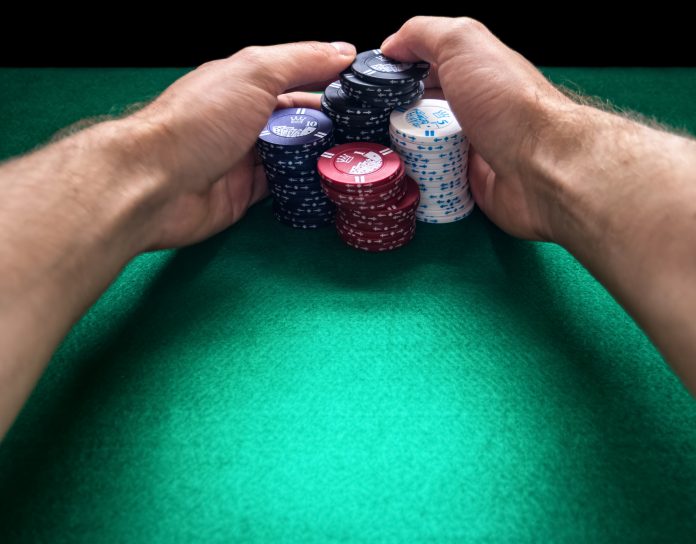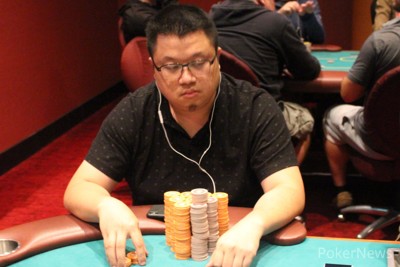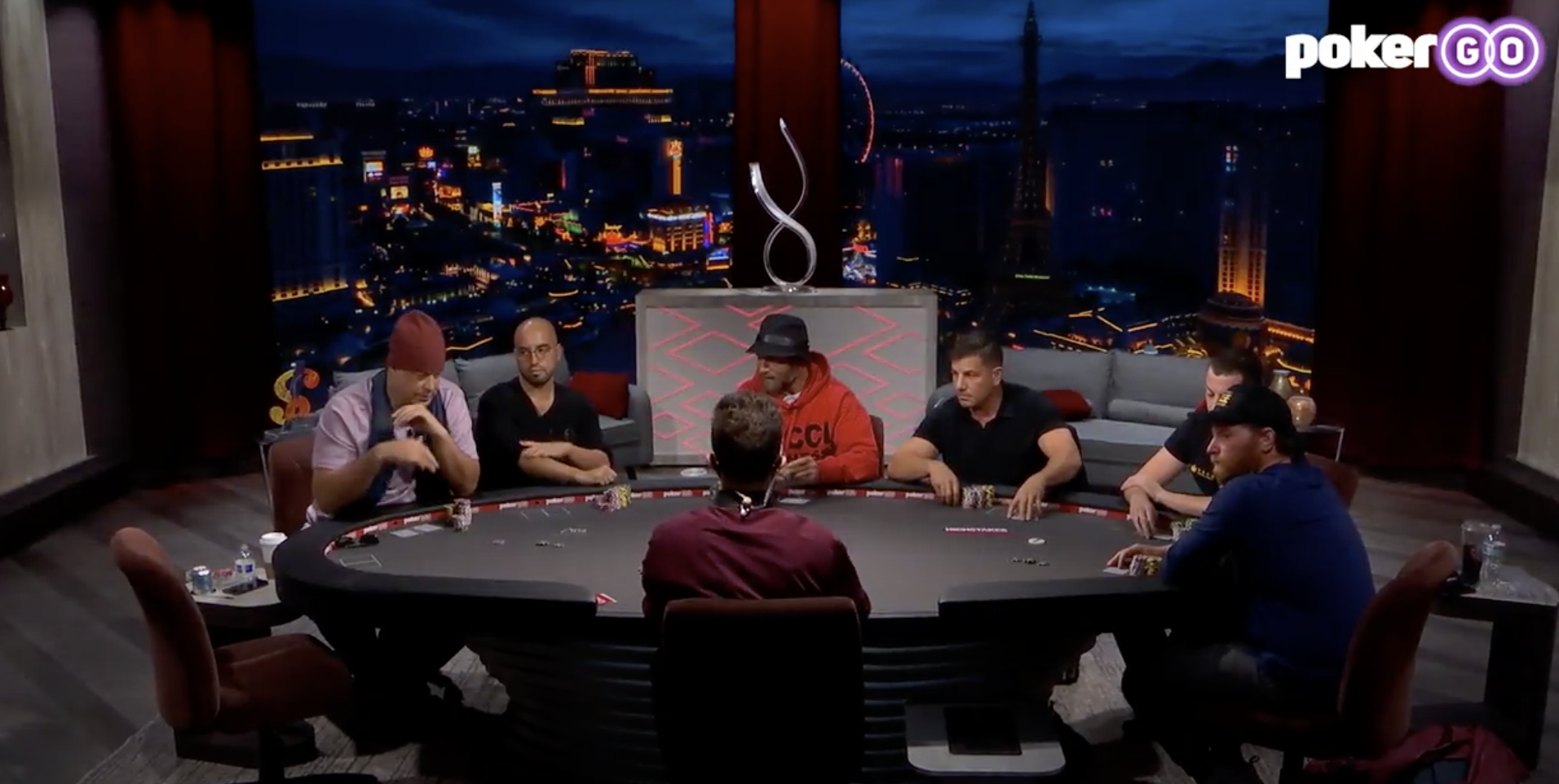Poker Bluff Catcher
A bluff catcher is a hand that isn't necessarily strong, but strong enough to call an opponent and beat them if you believe they're bluffing. It's a hand that's not good enough to value bet, as you'll have to fold if raised as it isn't good enough to beat your opponents value-betting range. Bluff Catcher Hi, I'm a beginner poker player in New Jersey. I'm hoping to learn and improve. View my complete profile. Follow by Email. Theme images by pollux.
When you’ve played poker for years, it’s easy to forget that technical poker speak may as well be a different language. Many players just picked up a deck of cards for the first time and are wondering what the hell a reverse implied range merge against a large stack to pot ratio is.
Maybe you are new to poker as well and want to start analyzing the game at a deeper level, but the lingo and foreign concepts get in the way. To help, _Card Player_ brings you this brand new series, Explain Poker Like I’m Five.
Every issue, we’ll take on a new term or idea, perhaps one you might come across elsewhere in this very magazine, and we’ll break it down to its simplest components.
The Concept: Bluff Catcher
What Is It?
A hand with marginal strength that is not good enough to bet or raise with, but strong enough to go to showdown against an opponent’s bluffs.
Okay, Now Explain It Like I’m Five
Bluff catchers are also known as value calls. When you make a medium-strength hand that cannot be bet for value, it is often the best play to turn your hand into a bluff catcher. You let your opponent bet and call, hoping your opponent was bluffing. The strength of a bluff catcher can vary depending on your opponent’s betting range.


Give Me An Example (Or Two)
You are playing in a $2-$5 no-limit hold’em cash game and the cutoff raises to $20. You call from the big blind with K Q and the flop comes down A K 6. You check and your opponent makes a continuation bet of $30.
You call with second pair and the turn is the 5. You check again and your opponent checks behind. The river is the 5, and you miss your flush draw. This might be a good opportunity to turn your hand into a bluff catcher.
Your opponent checked behind on the turn, so it’s possible that your pair of kings is the best hand, however, if you bet, he will likely fold all lower pairs and all of his missed draws. So instead, you check. Your opponent might bet a better hand, like a pair of aces. Or your opponent might check behind with their lower pairs and missed draws.
Or, your opponent might take your check as a sign of weakness and bluff. If your opponent does bluff, you can call with your bluff catcher and take down the pot.
When deciding whether or not to try a bluff catcher, you must consider your opponent. If your opponent is passive or tight, you should lean towards folding. If your opponent is especially aggressive or loose, then you should lean towards calling. The amount your opponent bets should also be considered when deciding to call with a bluff catcher. ♠
We continue our journey into the ancient art of hand reading today by examining some spots where we have the opportunity to call a river bet with a bluff catcher. Understanding when your opponent is likely to be bluffing too frequently is a critical skill to develop early on in your career. Similarly, learning to recognise spots where the population is going to find it difficult to show up with enough bluffs to make you indifferent is equally crucial. Before we get to that though, our focus must be on learning to recognise when our hand counts as merely a bluff catcher and when it can win against hands other than bluffs.

What is a Bluff Catcher?
A bluff catcher is a hand that will beat every hand Villain is bluffing with and will lose to every hand he is betting for value. You will have a bluff catcher whenever you have a medium strength showdown value hand and your opponent is betting with a polarised range, meaning a range containing only strong value hands and bluffs. As more and more bets go into the pot, the bettor’s range gets more and more polarised and the caller’s medium strength holdings fall into the role of only beating bluffs.
Poker Bluff Catcher Meaning
Against a strong player, facing a river overbet on a flush completing card, it will usually not matter in terms of showdown value whether we hold top pair with a good kicker or a bad kicker. Both hands are bluff catchers in that they lose to every hand Villain is value betting (presumably these are all stronger than one pair) and beat all bluffs (presumably these are all weaker than top pair.) Against a wild maniac, on the other hand, we would much prefer to call the river bet with top pair good kicker than top pair bad kicker. This is because the maniac can be prone to fire away with random medium strength hands. Weak, aggressive opponents do not always understand why they are betting. Rather, they tend to be aggressive for aggression’s sake.
When Villain’s Range is Merged
A merged range is one that contains not only strong value hands and bluffs but also a slew of random holdings in between. When we call a flop c-bet we have a merged range because we call with mediocre hands. When we’re firing off multiple barrels, however, our range should be fully polarised meaning that it contains no medium strength hands. It does not make sense to value-bet with hands that are behind when called and it is usually foolish to bluff with hands that would have often won by checking. Thus, we normally refrain from firing three barrels with second pair.
Not all of our opponents understand this facet of betting. Take the following hand I played yesterday for example. At 100 ZOOM, I opened in the HJ with A♦9♥ for 2.5BB and a recreational player calls in the big blind. The flop came Q♥9♦4♠ and Villain checked. I bet one third of the pot and he called. The turn came the 6♥ and it went check-check. The river was the 10♠ – a bad card for me due to how often it hits Villain’s range. He bet half of the pot giving me a win target of 25% to break even on a call (3:1 pot odds). No doubt I’m usually losing here and my hand ought to be a bluff catcher in theory.
If I am only winning against bluffs, then it might be close whether or not I can call. It seems unlikely that my opponent can reach tis river with too much air due to all of the draws that completed on the end. He will probably need to be turning Ace-high or a small pair like 22–33 into a bluff here (maybe even some 4x) for him to be bluffing often enough.
Because I know that this opponent is a weaker player, however, he needn’t have exactly a value hand or a bluff – there is a third possibility. Villain might just be betting for no reason with a hand like 77 88 or 9x. Once we introduce the possibility of him having too merged of a range, the call at 3:1 pot odds becomes winning. I make the call and win against 55 this time. This is not unexpected. 77 or 88 would not have surprised me either.
Against weaker opponents, you might have better than a bluff catcher when you hold a medium strength hand on the river.
The ‘Beat Some Value’ Rule
Theoretically speaking, when you hold a bluff catcher, you are indifferent to calling. This is because Villain should be betting the right mix of value hands and bluffs to stop you from having an automatic call or automatic fold. If you are facing a pot sized river bet, he is supposed to be bluffing a third of the time, and if he is bluffing a third of the time, then you break even on a call getting 2:1 on your investment. If, however, Villain is also betting medium hands, or your hand is better than just a bluff catcher, then we can say that you beat some value – meaning that you can win against Villain’s made hands sometimes as well as his bluffs. If you beat even a few value hands and all of Villain’s bluffs then your hand is theoretically profitable to call. The golden rule we can derive from this is:
If you can beat all bluffs and a few value hands you should always call unless you think Villain is not bluffing as often as he is supposed to be.
Summary

Poker Bluff Catcher Game
- A bluff catcher is a hand that beats all bluffs and loses to all value hands.
- Medium strength hands are bluff catchers against polarised ranges.
- Weaker opponents will often bet with a merged range instead of a polarised one due to lack of experience/logic.
- Medium strength hands might be better than bluff catchers vs. merged ranges.
- If you can beat all bluffs and some value hands then you should always call barring a specific read that Villain does not bluff often enough.
Poker Bluff Catcher Bar
Join us on our Discord channel.